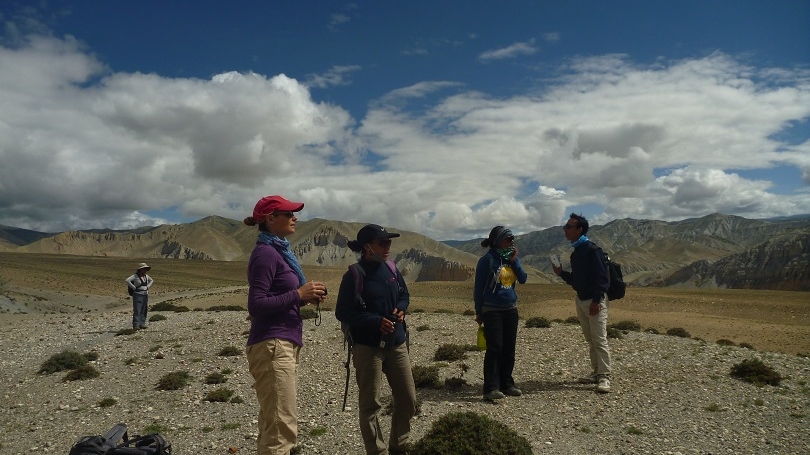
Menu
- Public Policy
- Leadership
- Funding
- News & Events
- About the Center
Back to Top Nav
Back to Top Nav
Back to Top Nav
Back to Top Nav
Sienna Craig is an Associate Professor and Chair of the Department of Anthropology. As a cultural anthropologist, the major focus of Professor Craig’s research, writing, and teaching is the social study of medicine. Her research often takes her to the Nepal Himalaya and Tibetan regions of China. During the fall term she sat down with Niki Bakhru ’17 for an interview to discuss her work, and how she was able to put to use a Rockefeller Center Faculty Research Grant she received.
Bakhru: Your research in Nepal dates back to your undergraduate education. What inspired your interest in this region?
Craig: I’ve worked over many years with traditional medical practitioners in the region on health and development issues. I’ve also worked with migrants from that part of the world who have come to the U.S. Especially with the earthquakes that recently occurred in Nepal, a lot of my energy has been focused on research and on various forms of relief and rebuilding efforts in Nepal. I’ve lived and worked there since 1993, so my connections there are on one hand professional and related to my research, and on the other hand very much a part of my life. After the earthquakes happened, three colleagues of mine from different institutions and I applied for a National Science Foundation Rapid Award - specifically for these types of circumstances when data collection needs to happen quickly because things are changing all of the time. We wrote a proposal to study the impacts of the earthquakes in three different districts in Nepal that are all geographically contiguous but differently affected. Our goal with that project – Narrating Disaster – was to look at peoples’ experiences of the earthquake and their understandings behind the cause of these earthquakes. Connecting to the Rockefeller Center’s themes of policy and government, many people there are currently questioning the role of the government in determining relief and causality surrounding these earthquakes.
Bakhru: How has the Rockefeller Center supported your work?
Craig: The most recent help I’ve received from Rocky has gone toward a project related to understanding women’s experiences, specifically their reproductive health lives. I’m working on this project with another cultural anthropologist and a biological anthropologist to investigate the reproductive histories in women from high-altitude Himalayan environments in relation to their biological adaptations. There are a lot of reasons why a lot of babies and mothers will suffer and die that do not have to do with biology, but have to do with structural inequalities, healthcare policy, and general knowledge.
Bakhru: Has there been a particular instance that you have found most valuable in your research?
Craig: I’ve noticed how quickly the lives of women have changed in the communities in which I work, mostly for the better. Women in our major study are all at least 40 or older – people who for the most part have completed their reproductive careers – and, for many of those women, it was the reality that they would have six to eleven pregnancies in their life, where less than half of those pregnancies would proceed to become living children. For women in the region of Nepal where I worked most explicitly, within the course of about one to two generations, there has been a radical shift that many of the women my age or younger today only have two or three children. These are due to changes in fertility and the choices people are making about their bodies. Some of that, of course, has to do with making modern contraception more available in that shift between generations, and a lot of it also has to do with what family means – who and how many people you need to sustain a household as well as the costs of raising children. I’ve seen a new way of looking at the equation that has come with the rise of access to modern education. People want to create better lives for their children than they had themselves.
Submitted by Niki Bakhru '17, Rockefeller Center Student Program Assistant for Communications and Student Outreach